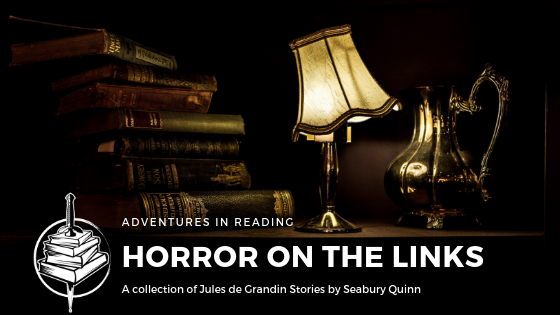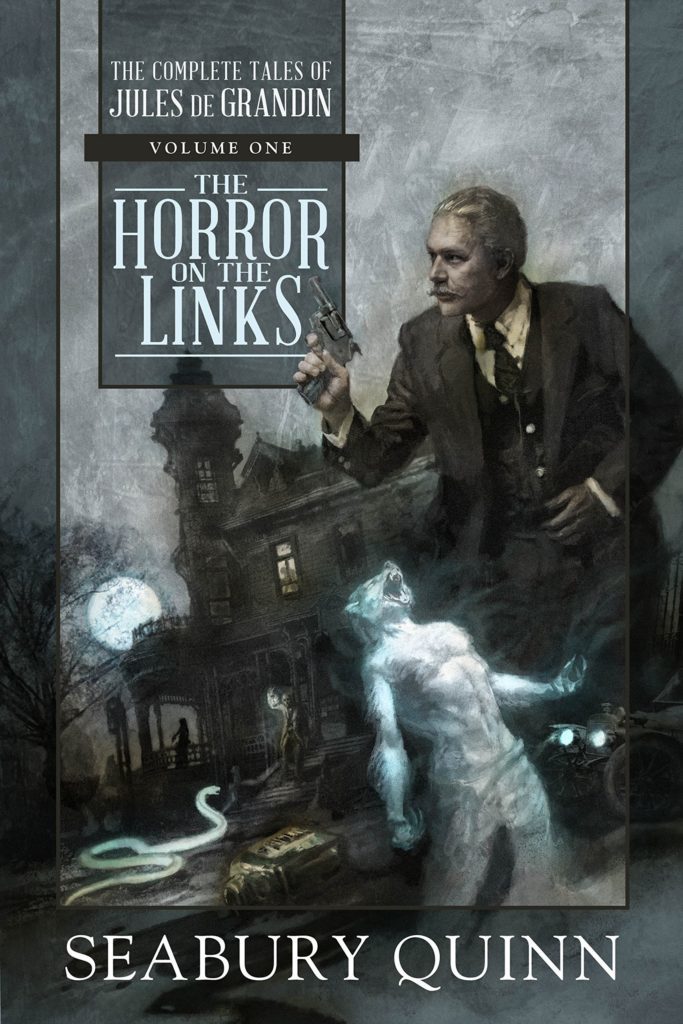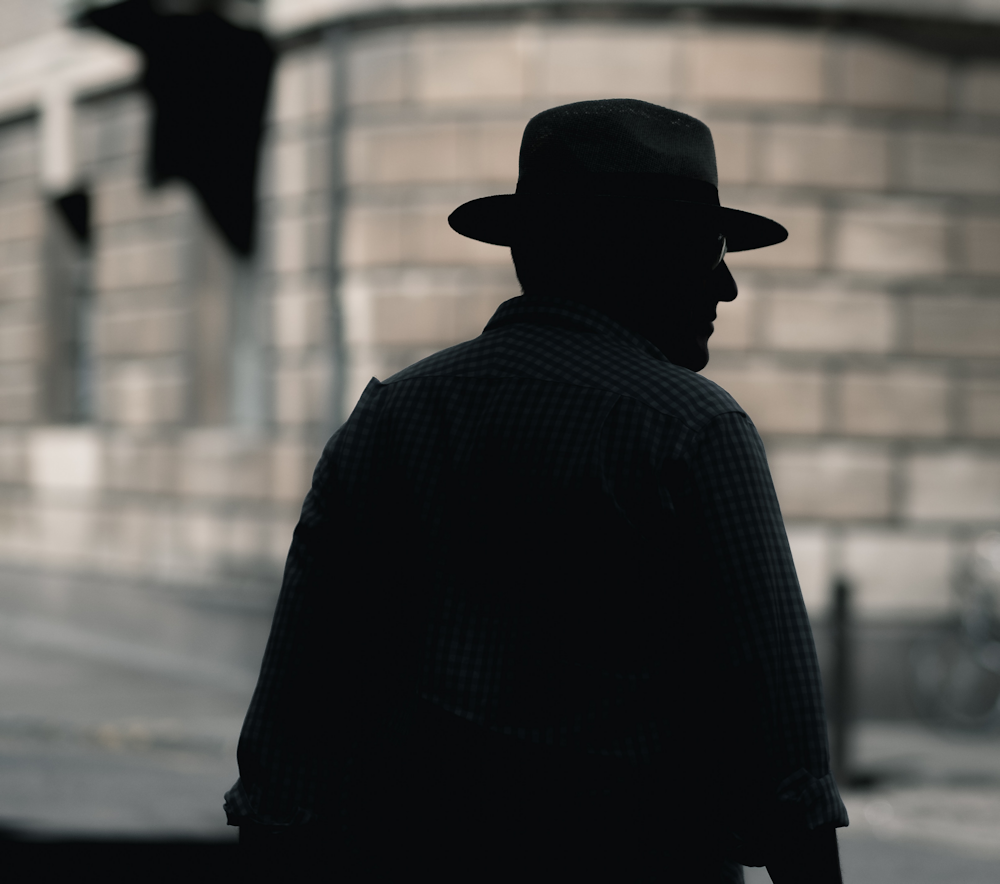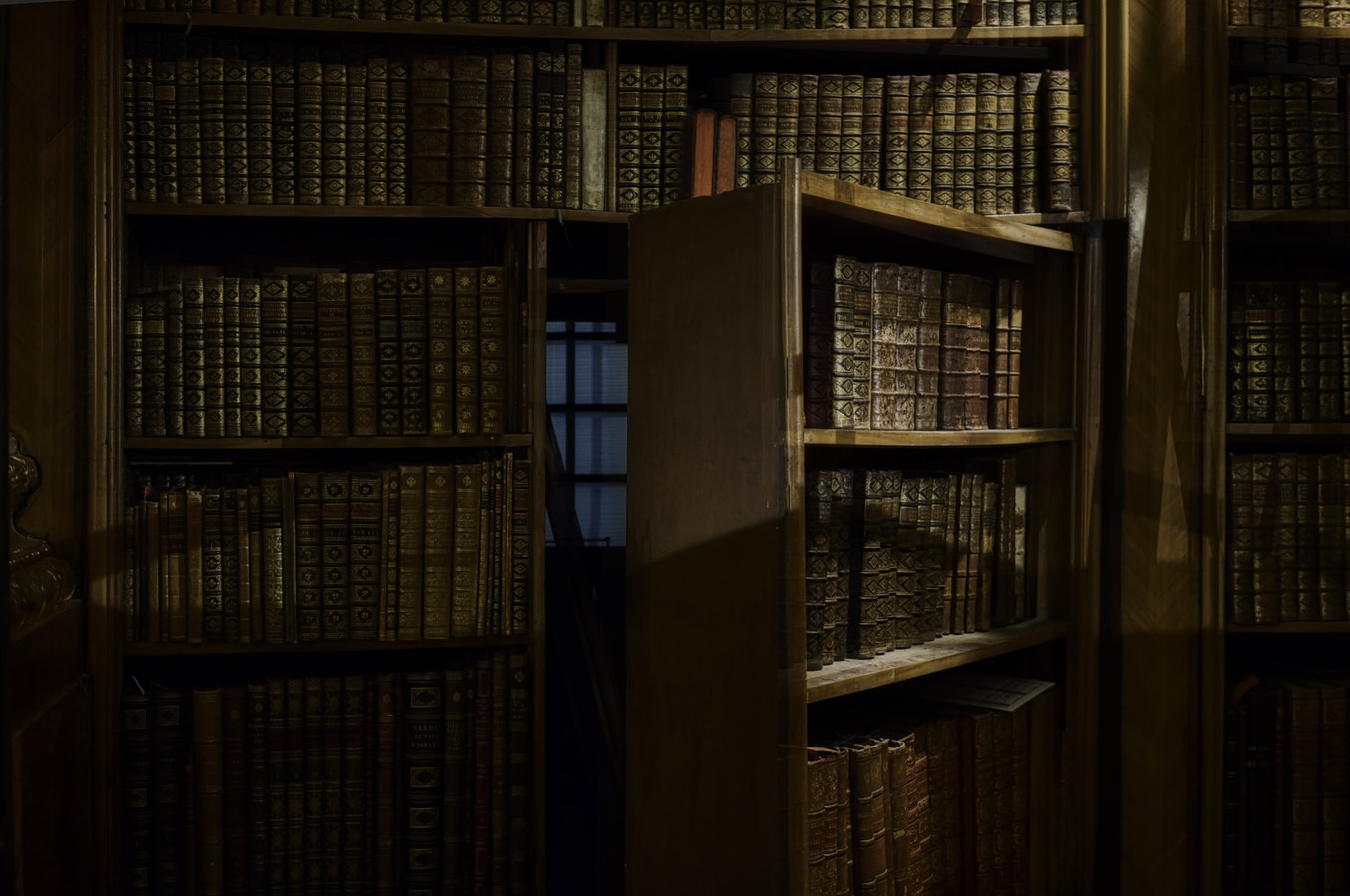
by Matthew Tansek | Feb 4, 2020 | Musings
So I was asked the other day why it is that I read horror fiction. It’s a fair question, and probably one that resonates with a lot of those that don’t find themselves drawn to stories that are quite so dark. It might even sound like an unpleasant experience being drawn into a story where things are going to go from good to horrible. But before I dive into the reasons that I read horror fiction, let me tell you first off that it’s not like I read all kinds of horror fiction. Like most people, there are certain types of stories that I find way more pleasant to read and get my mind firing. I am NOT a big fan of super graphically gory fiction or stories that involve truly awful things like rape or mutilation. If the story could be described as Saw-esque it is not for me. And please don’t think I am criticizing you if that is your thing, to each their own. But for me, the kind of horror that I truly find fun to read are stories that are more conceptually horrible, supernatural, or novel in nature. So this is really just a personal list for me, but I think that it will strike a chord in many of you that like me enjoy this particular flavor of horror.
1 – The Stakes Are Higher
In almost every other form of fiction, you are aware that at the end of the day things are going to work out ok for the protagonist. I mean even if they bite it in the end, things are going to go the right way for the good guys. But ho, not so in horror fiction. The best kind of horror fiction builds up the stakes for the good guys, draws you into the characters and makes you invested in them, and all the while you know that there is no promise that things are going to turn out ok. The difference is like bowling with and without the bumpers in the gutters. The risk is real, the tension that is created is more real, and the edge of your seat experience as things ramp up in the story can be so much more intense because of it.
2 – The Appeal of Regular Joe
Good horror is all about relatability, and that means that the protagonist isn’t going to be someone that is going to be all that different from you or me. Regular people trying their best to cope with horrifying situations and cunning evil entities. Protagonists in horror stories have to rely on the simple strengths of humankind, mental resourcefulness, and the WILL TO SURVIVE!
3 – Genera Spanning
If you are reading a western do you know where it is going to take place? How about if you are reading a fantasy novel? But horror? Yeah, not so much. Horror doesn’t play by those rules, it exists wherever the author wants it to exist; just as likely to be lurking in the basement of an old farmhouse as it is in a dialect space vessel. Fans of horror are rewarded with an incredible variety of characters, settings, and world-shaping machinations. The flavors are so varied that it’s a general that you can really never get bored of (at least I never do).
So there you have it, the top three reasons why I read the kind of horror that I do. But if there are aspects of horror that pulls you toward it that are different than mine, please let me know! Little by little, we are going to chip away at this barrier of entry for this type of story, and yunno I think a whole host of people that would have never tried it out will be pleasantly surprised at how much they enjoy it.

Featured image by Aphiwat chuangchoem

by Matthew Tansek | Feb 20, 2019 | Musings
Let me take a moment and put down some of my thoughts about this great little occult detective series.

[ezcol_2third]
[S]ometimes there is just nothing better than indulging your weaker side and diving into a story that you know is just going to be a lowbrow delight. You know you’re not going to come away enlightened or smarter. No wisdom is going to really be imparted to you, just the enjoyment of the experience. As I picked up my Kindle last night I found myself doing just that, seeking out a treasure trove of entertainment simply for entertainment’s sake. So let’s take a look at this little gem, shall we?
If you’re interested in this book here are the notes from the publisher:
Today the names of H. P. Lovecraft, Robert E. Howard, August Derleth, and Clark Ashton Smith, all regular contributors to the pulp magazine Weird Tales during the first half of the twentieth century, are recognizable even to casual readers of the bizarre and fantastic. And yet despite being more popular than them all during the golden era of genre pulp fiction, there is another author whose name and work have fallen into obscurity: Seabury Quinn.
Quinn’s short stories were featured in well more than half of Weird Tales’s original publication run. His most famous character, the supernatural French detective Dr. Jules de Grandin, investigated cases involving monsters, devil worshippers, serial killers, and spirits from beyond the grave, often set in the small town of Harrisonville, New Jersey. In de Grandin there are familiar shades of both Arthur Conan Doyle’s Sherlock Holmes and Agatha Christie’s Hercule Poirot, and alongside his assistant, Dr. Samuel Trowbridge, de Grandin’s knack for solving mysteries—and his outbursts of peculiar French-isms (grand Dieu!)—captivated readers for nearly three decades.
Collected for the first time in trade editions, The Complete Tales of Jules de Grandin, edited by George Vanderburgh, presents all ninety-three published works featuring the supernatural detective. Presented in chronological order over five volumes, this is the definitive collection of an iconic pulp hero.
The first volume, The Horror on the Links, includes all of the Jules de Grandin stories from “The Horror on the Links” (1925) to “The Chapel of Mystic Horror” (1928), as well as an introduction by George Vanderburgh and Robert Weinberg.
[/ezcol_2third] [ezcol_1third_end]

[/ezcol_1third_end]

[ezcol_1third]
Collection:
The Horror On the Links
[/ezcol_1third] [ezcol_1third]
Story Title:
The Curse of Everard Maundy
[/ezcol_1third] [ezcol_1third_end]
Author:
Seabury Quinn
[/ezcol_1third_end]

Story Hook
Trowbridge and de Grandin notice that there seems to be a preponderance of suicides in Harrisonville. de Grandin, itching to sink his teeth into a new investigation starts looking into the deaths to see if there is a connection between those dead.
Interesting Elements
This story is one that has a lot more twists and turns than the usual de Grandin romp, and perhaps that is why I like it so much. The investigation into the suicides leads our heroes to a suspicious preacher, who then turns out to just be another victim in his own way. Trowbridge nearly succumbs to his own dark thoughts, empowered by an unknown evil. A beautiful ghost transforms into a malevolent hag, and we even get to see de Grandin go toe to toe with the walking dead! It definitely felt like Quinn put some more effort into making this one more action-packed, ratcheting up the tension with the ever-present and indefensible threat of suicide.
Reflection
I’m not going to say that this (or any of the other de Grandin stories) is a great work of literature. But what I will eagerly say is that this story was a lot of fun to read and I think really showcases the characters in a great way. We get to see what Trowbridge brings to the table by way of his medical know-how and local geographical knowledge. We get to see the seemingly limitless ego of de Grandin and his compulsion to wage a crusade against supernatural evils. You know, often times this is not the case which helped to make the tale feel more rounded. Additionally, we seem to have departed from Quinn’s formulaic output and veered off into a write-by-the-seat-of-your-pants type of story which I think made it more fast-paced and unpredictable. The hook felt fresh and unforced, and the investigation as a whole felt more or less organic, despite de Grandin’s habit of keeping the facts to himself until the big reveal at the end of the story.
Looking back now that I have read quite a few of these little stories I have to say that this one stands out. The supernatural entity is just foreign enough, and the solution to the problem is less of a write off than in other tales. I think that Quinn’s background working in funeral homes and around death may have inspired and informed aspects of this story. de Grandin is a Mary Sue to be sure, but once you can get behind him it’s a delight to see him cut his way through the plot. If I were to recommend a Jules de Grandin story to someone, I would say to start with this one.


by Matthew Tansek | Nov 6, 2018 | Musings
If you noticed this week I have posted a new short story to my site titled Animal Control. I was pretty excited to write this type of story and I thought I did a good job of capturing a colorful surrealist energy, but I’ll go into greater detail about that below. If you are interested in reading it for yourself, you can access it from the link below. Just as a reminder if you sign up for my infrequent newsletter you’ll get access to all of my short fiction early, and even have the chance to help me decide what kinds of creative projects I should try moving forward.
Animal Control
What was I attempting to do with this story?
Animal Control began with the want to write something that was a classic adventure story at heart, but twist the world building aspect in such a way that would set it apart from a traditional swashbuckling adventure. I endeavored to throw a main character out of their normal humdrum life into one of vibrant weirdness and unexpected elements. I adhered pretty hard to Campbell’s Hero’s Journey model on purpose in order to give the whole thing the feeling of a more traditional adventure.
Did I have any particular inspirations?
I had a lot of fun dreaming up the various creatures that inhabit the story’s world. I don’t know if there is really one thing that I took inspiration from, but a thousand things that strike similar chords out there. It’s always so hard to think up a creative doorway that connects the “real world” from the bizarre foreign one that your main character plunges into. I eventually ended up on a hallow Earth model of a fantastical world with the thought that if such a place existed how hard it would be to try and segregate the natural world into its respective layers.
In the end, as always, is my work flawed? Yes. Was it fun to write and share with all of you? Also yes. If you have any creative comments for me feel free to post them below, or if you have any creative works along similar lines feel free to share the link.
Thanks.

by Matthew Tansek | May 30, 2018 | Musings
Like many people I’ve got a deep fascination with the pulp stories of yesteryear, and up until this point I had thought I had read all of the occult detective stories that were out there that had been written in that time period. I marveled at the electric pentacle of Thomas Carnacki, and the Ghost Busters-esque hauntings that he set out to solve. I mulled over the philosophical implications of the paranormal with John Silence, or Flaxman Low.
And then like a gift, a new occult detective stepped from the shadows; Seabury Quinn’s character, Jules De Grandin.
I discovered the fussy paranormal version of Agatha Christie’s Perot while reading Conan’s World and Robert E Howard by Darrell Schweitzer. Which sent me on a prolonged scrounge though my personal library to see if I already owned any of the stories in question. Often it is the case that I will acquire compendiums and collections for one or two particular works, and not ever get around to reading the thing cover to cover. Lo ad behold, I came up with three De Grandin stories that had up until that point slipped quietly by me, nestled in Wildside press’s 25 Occult Detective Stories Megapack.
Needless to say I plowed through them with great fervor. Here are my quick thoughts about each, there will not be spoilers.
The Jest of Warburg Tantavul
A solid introduction to the character of Jules De Grandin and his stalwart comrad Dr. Trowbridge (who at this point in time to me seems very much cut fro the same cloth as Doyle’s Dr. John Watson). It’s a story that both depicts the rigid religious mindset of people at the time, with innovative ideas on how to deal with the supernatural. De Grandin’s French idioms are on full display, as well as his straightforward approach to things seemingly out of the realm of possibility. The story left me with questions about the nature of the supernatural elements, and the motivations of Warburg Tantavul, but resolved enough to feel satisfying by the end of it. Definitely my favorite of the three that I read.
Pledged to the Dead
Certainly an interesting read, and a concept that I didn’t see coming at the outset. Would I have liked to see more of the steamy streets of 1920’s New Orleans? Yes. Was it necessary for the story? I guess not. The supernatural element was inventive, and you get to experience a story that comes right up to being risque (or at least risque for the times). Like the story before it you get to see a bit of how progressive Seabury Quinn was, presenting the reader with real world problems (albeit not real world causes) and a level headed set of characters responding accordingly.
The backstory as to why the supernatural shenanigans took place seemed weak, and were not satisfactorily reasoned or solved in my opinion. It also left me
Incense f Abomination
Definitely a story that showcases the pulp magazine’s desire to have racy vulnerable women on it’s cover. This story was fun to read for a number of reasons. Firstly it has a bit more of a detective element at the outset, with De Grandin taking action on the streets of Harrisonville New Jersey. It has a great set of exchanges between the character relating the story and De Grandin which shows the snappy wit of Seabury Quinn and the guile of his detective character.
What this story fails on for me is the murky rationale of the apparition that plays prominently at the end of the story, and the eventual proposed and enacted solution to the problem. Degrandin in the first two stories showed almost a scientific mindset, or at least provided a clear explanation of the world’s internal logic. But in this one it felt like things were rushed and not particularly well reasoned.

If you’ve read any of Seabury Quinn’s Jules De Grandin stories and have an opinion feel free to leave a comment below. I’m sure I will be delving into more of these stories in the future, and will let you know as I go along. They are fun, easy reads that hit the right chords of action and memorable characters. Would definitely recommend.

by Matthew Tansek | Feb 17, 2018 | Musings
If you love pulp fiction and weird tales as much as I do then you’ve probably already heard about the €300,000 donation that Da Vinci Code author Dan Brown gave to the Ritman Library to digitize it’s occult collection. The collection includes thousands of pre-1900s texts including alchemy, astrology, magic, and theosophy. How cool.
This is a particularly awesome thing for those of us who like to dabble in fiction that often revolves around occult themes or any of the subjects listed above. I think that far too often speculative authors are forced to concoct fictitious source material for stories that they wish to tell. But now with this huge collection freely available online, one only needs an afternoon of research to find real world material. Even if you are just looking to name drop some manuscripts you can now do it with some authority, I know that I plan to!
Feel free to check out the library’s site here
Guide to the collection – ebook

Photo by Stefan Steinbauer on Unsplash

by Matthew Tansek | Dec 8, 2017 | Musings
This piece, more a fragment than any actual story first came about when I was composing a facet of a table top role-playing game in 2016. While never actually making it into the game, the idea of a person that you could go to, to find the answers you were seeking by the interpretation, transportation and manipulation of dreams intrigued me.
The Dreamwalker’s den was born out of depictions I have read of 19th century opium dens, collectives that existed on the fringes of society. These places are particularly intriguing to me in that, while being removed from the moral center of civilization, it is universally appealing to those of any socioeconomic class. A gritty mixing pot of people all seeking an escape from the real world or a glimpse into what may be beyond.
You can read the Dreamwalker here.








